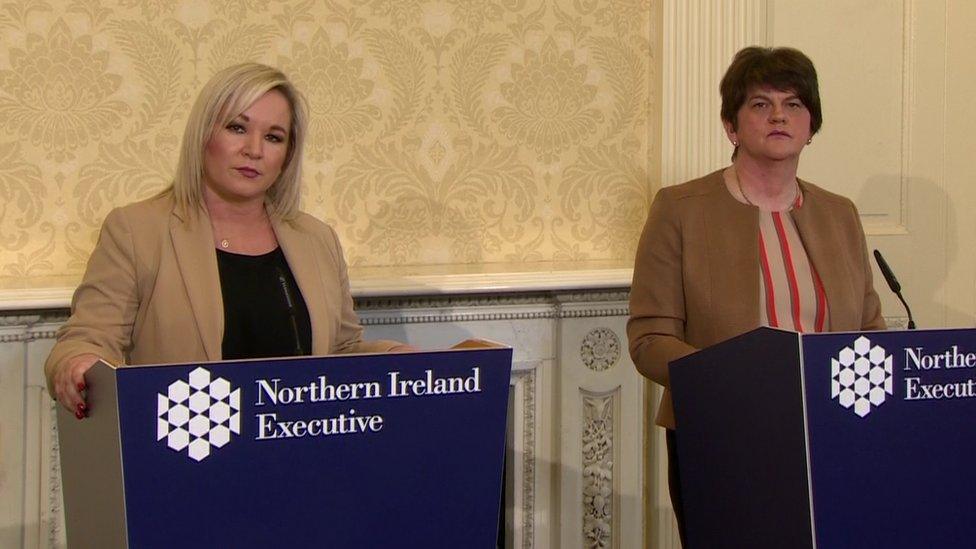NI education: Significant rise in post-lockdown school absence rate
- Published
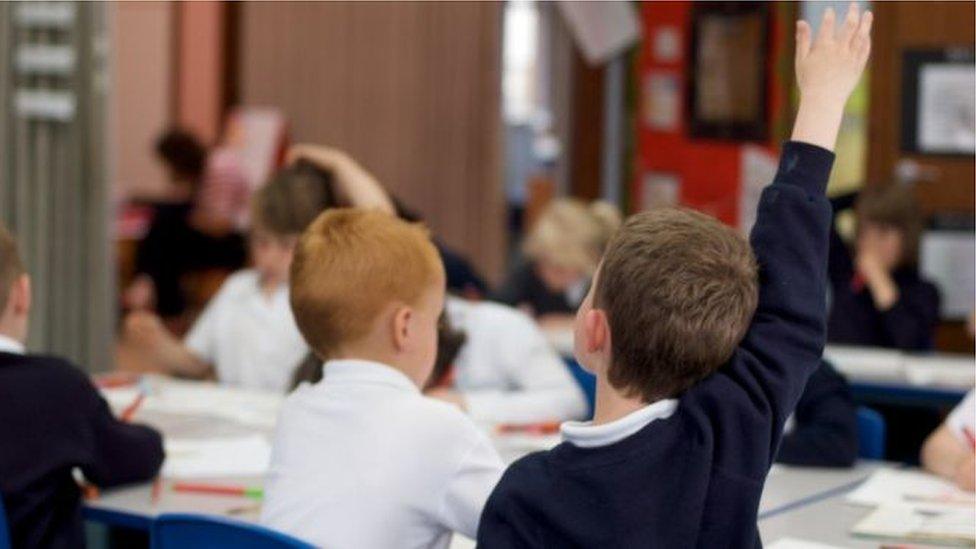
Lockdowns due to the pandemic disrupted the 2019/20 and 2020/21 academic years
There was a significant rise in absences in the first full school year following lockdowns.
That is according to attendance figures for the 2021/22 academic year published by the Department of Education (DE).
Lockdowns due to the pandemic disrupted the 2019/20 and 2020/21 academic years with many pupils not in school for extended periods.
But absence rates from schools were higher in 2021/22 than during the pandemic or the year before it.
The 2021/22 attendance statistics in Northern Ireland show that almost 10% of school days were missed by pupils due to absence.
By comparison, the absence rates in 2018/19, 2019/20 and 2020/21 were all around 6%.
However, as most pupils were not in school from 23 March 2020 until the summer of that year, attendance for most was not fully recorded during that period.
'Unauthorised' absences
During a subsequent lockdown, which began in January 2021, pupils learning remotely at home were marked present.
Pupil illness was the main cause of absence in the 2021/22 school year, accounting for over half of all days pupils were off school.
Absence due to Covid was a significant factor, but the majority of sickness absences were for other illnesses.
However, around a third of absences were unauthorised - in which the school did not receive any reason why a pupil was off or approve their absence.
In post-primaries, for instance, no reason was provided for a quarter of pupil absences.
Special schools had the highest rate of absence with around 15% of school days missed by pupils, but rates also rose in both primaries and post-primaries.
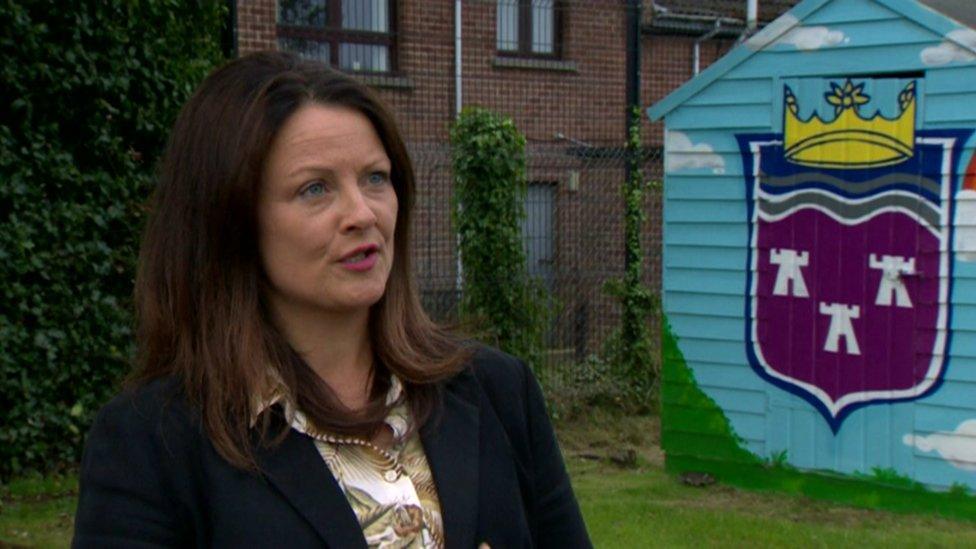
Fiona Smart said more pupils are displaying anxieties at home and in school
The vice-principal of Brooklands Primary in Dundonald, Fiona Smart, told BBC News NI there were likely to be a number of reasons why absences had risen.
"All of the educational and health services that parents and schools rely on to help pupils are under pressure," she said.
"We're definitely seeing more pupils who have anxieties presenting at home and in school, so there is an increased need for our school counsellor's support of pupils, parents and staff."
She added: "We're also seeing far more children presenting with special educational needs and it's taking longer to get children the right levels of support.
"The educational psychologists we work with are under immense pressure and we have less access to their time and expertise due to increased demands."
Ms Smart said that difficulties and delays in accessing specialist supports and provision could also impact a child's attendance.
"Parents have also been more wary of sending their children to school at times where we saw increased levels of viruses or infections, as highlighted in the news."
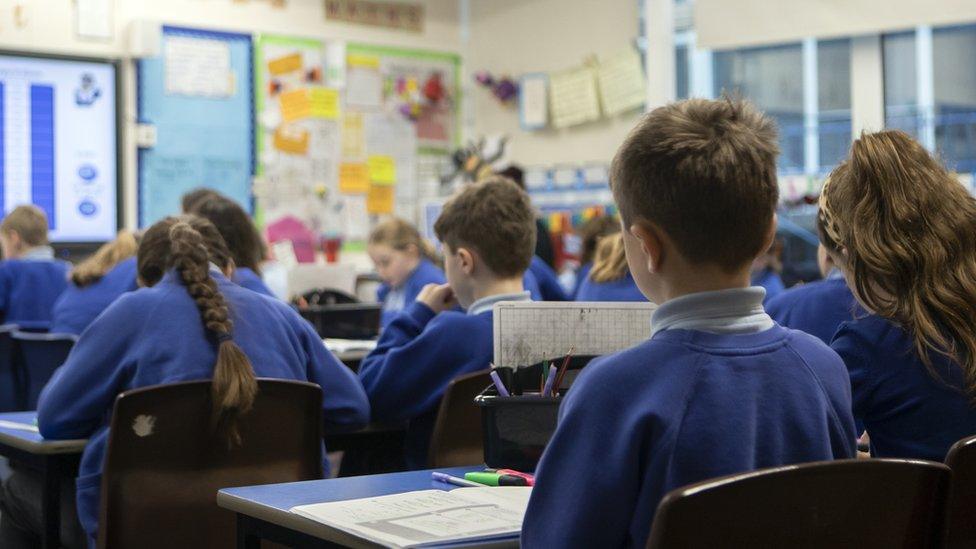
Geoff Dunn said the issues highlighted the need for services such as school counselling and nurture groups
The head of Ballysally Primary in Coleraine, Geoff Dunn, said that if more pupils were missing school due to issues such as anxiety that meant services to help them were vital.
"I think that highlights the importance of things like nurture groups in school," he told BBC News NI.
Nurture groups are special classes in schools, which provide extra help for small groups of pupils.
"If any children have increased anxiety we can work in school to address those," Mr Dunn said.
"With all of the ongoing education funding problems, we need services like school counselling and nurture groups to continue.
"Both of those services help pupils and ultimately save education money."
There is no data yet from the department on attendance rates in the current school year.
The children's commissioner in England, Dame Rachel de Souza, previously highlighted a rise in the number of children regularly missing school there.
Her investigation followed concerns that some pupils never fully returned to lessons after lockdowns.
Related topics
- Published10 February 2022
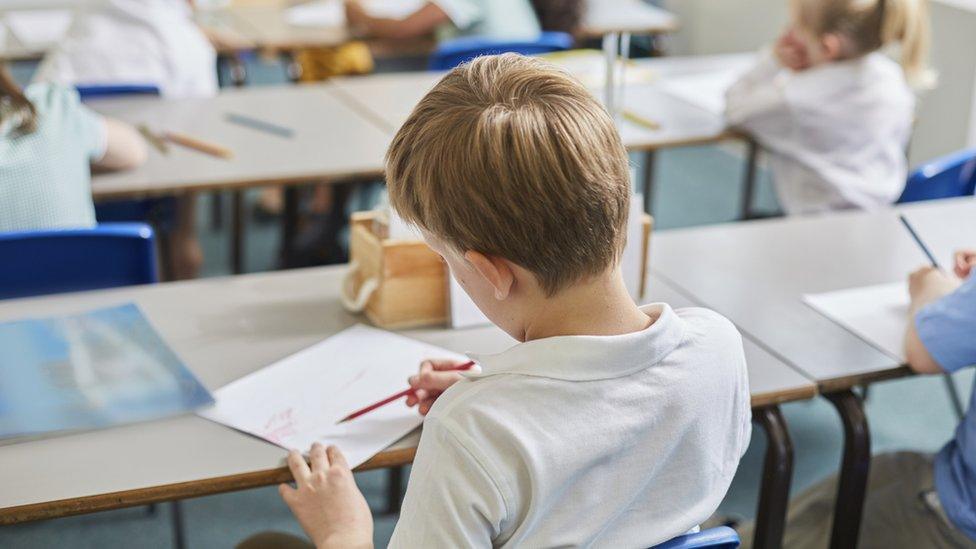
- Published9 March 2022
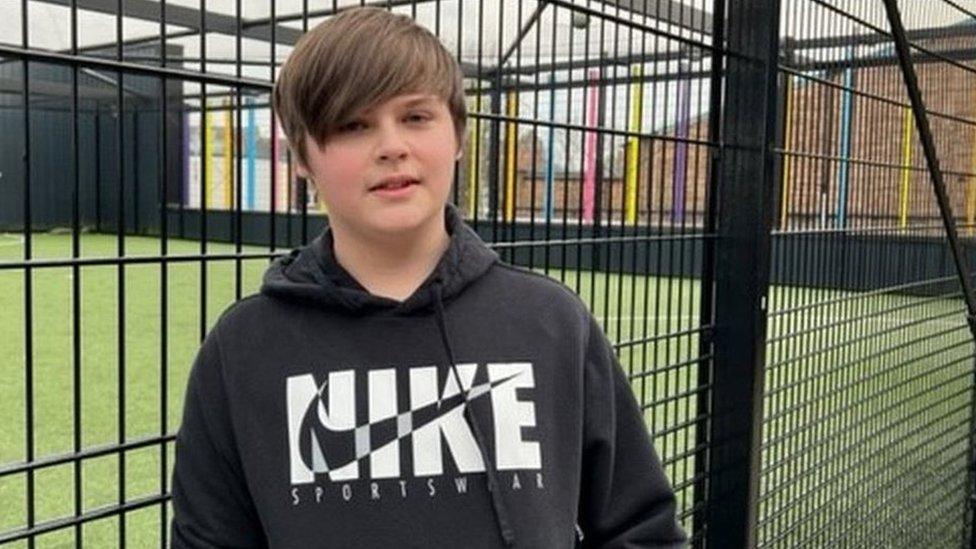
- Published18 March 2020
